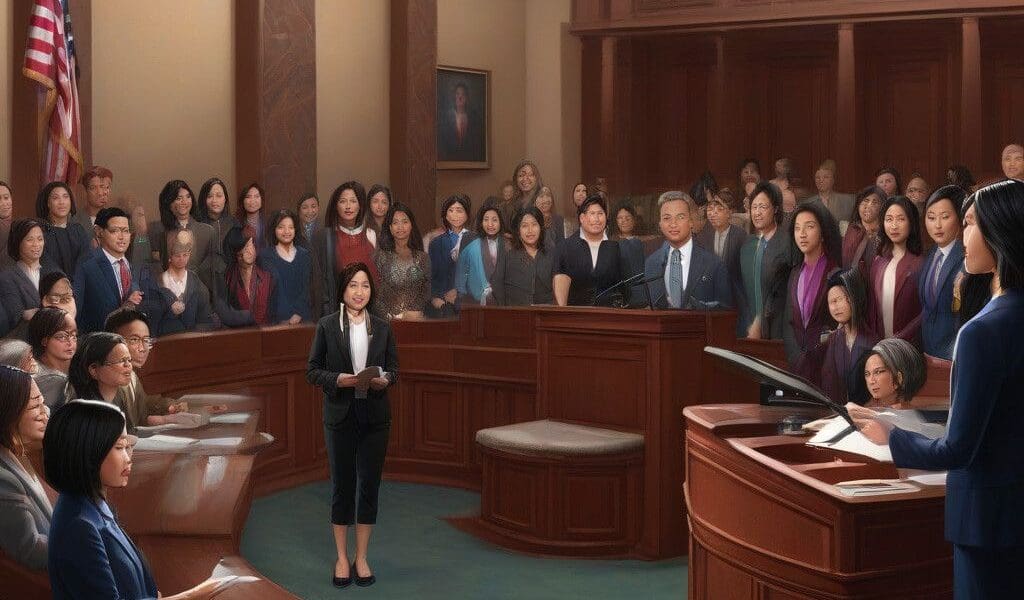California Passes New Bill Regulating Digital Replicas of Performers
California has recently taken a substantial step in digital rights legislation by passing Assembly Bill 1836. This pivotal law aims to safeguard the likeness and digital identity of performers, particularly concerning deceased artists. As studios increasingly turn to digital replicas for films, video games, and other media, the implications of this bill extend far beyond the realm of nostalgia and entertainment.
The crux of AB 1836 mandates that studios must obtain explicit consent from the estates of deceased performers before utilizing their digital likenesses. This requirement follows closely after a similar bill, AB 2602, which extends consent provisions to living actors. Such legislative actions showcase California’s proactive stance in defending performers’ rights in the rapidly evolving landscape of digital media.
The significance of AB 1836 cannot be overstated. It reflects growing concerns about the unauthorized use of digital replicas, especially as technology has advanced to a point where recreating an actor’s likeness is increasingly accessible and realistic. The convenience of technology, while beneficial in some respects, poses ethical challenges regarding ownership and consent. The recent bill aims to address these challenges head-on, ensuring that the estates of deceased performers are empowered to control how their likenesses are used, thus preserving their legacy and respecting their wishes.
SAG-AFTRA, the union representing entertainment professionals, has been a strong advocate for such measures. The union has emphasized the importance of protecting digital rights as a fundamental aspect of performers’ rights in the modern age. In a statement following the Senate’s approval of AB 1836, the union underscored the bill’s status as a “legislative priority.” Their support indicates the collective concern within the industry regarding the potential exploitation of performers, especially with advancements in artificial intelligence and digital animation making manipulation of likenesses more effortless than ever.
If Governor Gavin Newsom signs AB 1836 into law, it could set a crucial precedent for other states to follow. Such regulatory frameworks are vital for the entertainment industry as they delineate clear boundaries within which studios must operate. However, the bill does present practical challenges. Determining who holds the authority to grant consent on behalf of deceased actors can complicate its implementation. This complexity raises questions surrounding the management of estates and the viability of enforceable consents.
Moreover, the bill’s passage reflects a broader trend in entertainment law as issues surrounding digital replicas increasingly come to the forefront. The rise of technologies like virtual reality and artificial intelligence presents new opportunities and challenges for filmmakers, game developers, and performers alike. As the debate surrounding the use of digital replicas continues, AB 1836 stands as a critical reference point for how the industry might navigate similar issues in the future.
The passage of this law coincides with another significant discussion: the ethical considerations of using artificial intelligence in the creative process. The intersection of technology and artistry gives rise to questions about the integrity of original content versus artificial reinterpretations of it. California’s efforts in regulating digital replicas highlight the cultural and legal need to protect artistic expression while also respecting individual rights—even after death.
As we progress deeper into a digital future, legislation like AB 1836 will not only shape how the entertainment industry operates but will also inform broader conversations about intellectual property rights and ethical standards in digital replication. The steps taken by California could signal a shift in how other regions address similar challenges, potentially reshaping the entertainment landscape entirely.
In summary, California’s AB 1836 serves as a landmark in the protection of performer rights in a digital age. By mandating consent for the use of digital likenesses of deceased performers, it reinforces the importance of respecting the legacy and wishes of artists beyond their lifetime. This bill not only safeguards the past but also represents a significant step towards creating a fairer and more ethical future for the entertainment industry.








